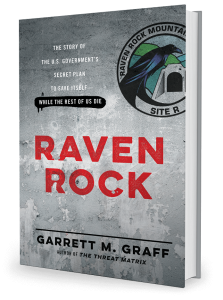One of my favorite concepts from researching “The First Campaign,” was this idea from Andy Stern of “Sputnik moments”óthat is, teachable moments that made everyone sit up and pay attention. Given the tunnel vision of American society, “Sputnik moments” basically means moments so ripe with symbolism or simply too huge to ignore—September 11 was certainly a Sputnik moment for our interactions with the Muslim world.
While I was working on the book, Britain experienced one in regards to India in October 2006 when the Tata Group, the Indian-founded conglomerate that is becoming an increasing world presence, bought Corus, the company that had once been British Steel in an US$8 billion deal. Prior to the deal, Tata was much smaller than Corus—it was ranked 56th in the world for steel production—but the rising Indian star found no shortage of global financial lenders to back the deal who were ready to gamble that the future of business lay in the east. Between the combined outputs of Corus (then the ninth largest world steel producer) and Tata, the new company produces more steel than once-proud giant US Steel. The British papers were, all at once, proud, troubled, and curious over the dealóthe largest foreign takeover ever by a company from Britain’s former colony.
At the time Ed Luce, the former South Asia bureau chief for the Financial Times, told me that it was only a matter of time before the US and India had a Sputnik moment to call their own too.
When Tata announced the bid in October 2006, already that month Tata had bought the Ritz-Carlton Hotel in Boston as well as a 30 percent stake in Joekels, the South African tea company, adding to its expanding drink portfolio, which included Tetley Tea. Earlier in 2006, it had bought two major U.S. brands: Eight O’Clock Coffee and Glaceau’s line of flavored waters. So far Tata’s international expansion and the implications of the supersized growth of Indian firms has stayed mostly off the political radar in the U.S. Don’t expect that to continue, Luce said. “At some point soon, we’re going to see the same thing in the U.S.” Luce told me as we were sitting in an Italian restaurant in Dupont. “ICICI Bank will buy Citigroup or Wipro will buy IBM and then there’ll be this rush to understand India. Right now, itís not urgentóitís just pressing.”
Today may just be a Sputnik moment, a small one granted, but one nonetheless: Tata Motors just this morning bought two luxury brands away from the struggling Ford Motors, Jaguar and Land Rover. Now I’ll grant that most Americans probably didn’t even know that these two European luxury brands were owned by Ford, but what does it say about the future of the world’s economy that already this year Tata seems poised to become a top player in the automobile industry? Earlier this year it announced a $2500 automobile and now it’s buying two of the most respected automobile brands in the world.
From this morning’s article from AFP:
“We would have much preferred Ford to keep the companies in the family, so to speak, especially with Land Rover being so profitable,” said British labor leader Tony Woodley, whose union had supported India’s top vehicle maker in its bid. “But with the commitments Tata have given to the future of Jaguar-Land Rover and the long-term supply agreements for components, especially engines from Bridgend and Dagenham [Ford sites in Britain], we’re obviously pleased.”
Let’s see how much coverage this sale ends up getting in the States over the coming daysóin the long run, GM, the longtime leading automaker which finished last year as the world’s largest by what amounted to a rounding error, may have more to fear from Tata than from Toyota.



Recent Comments